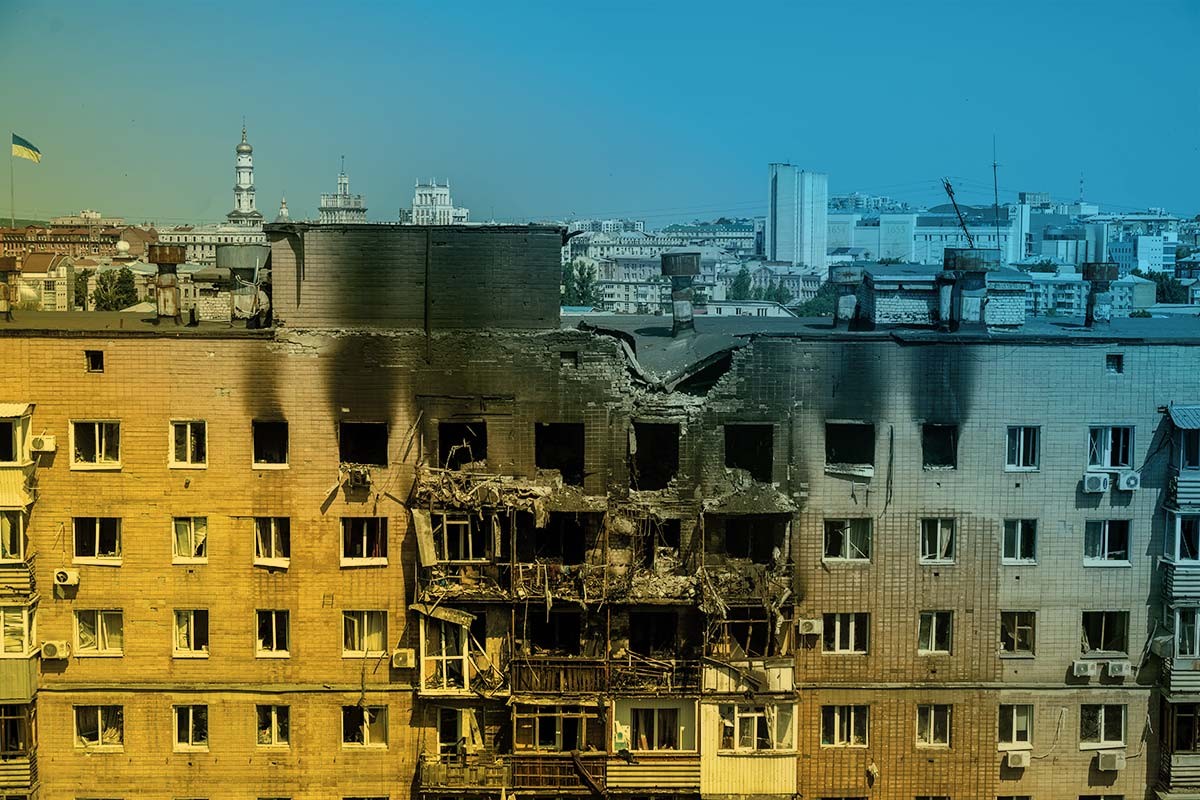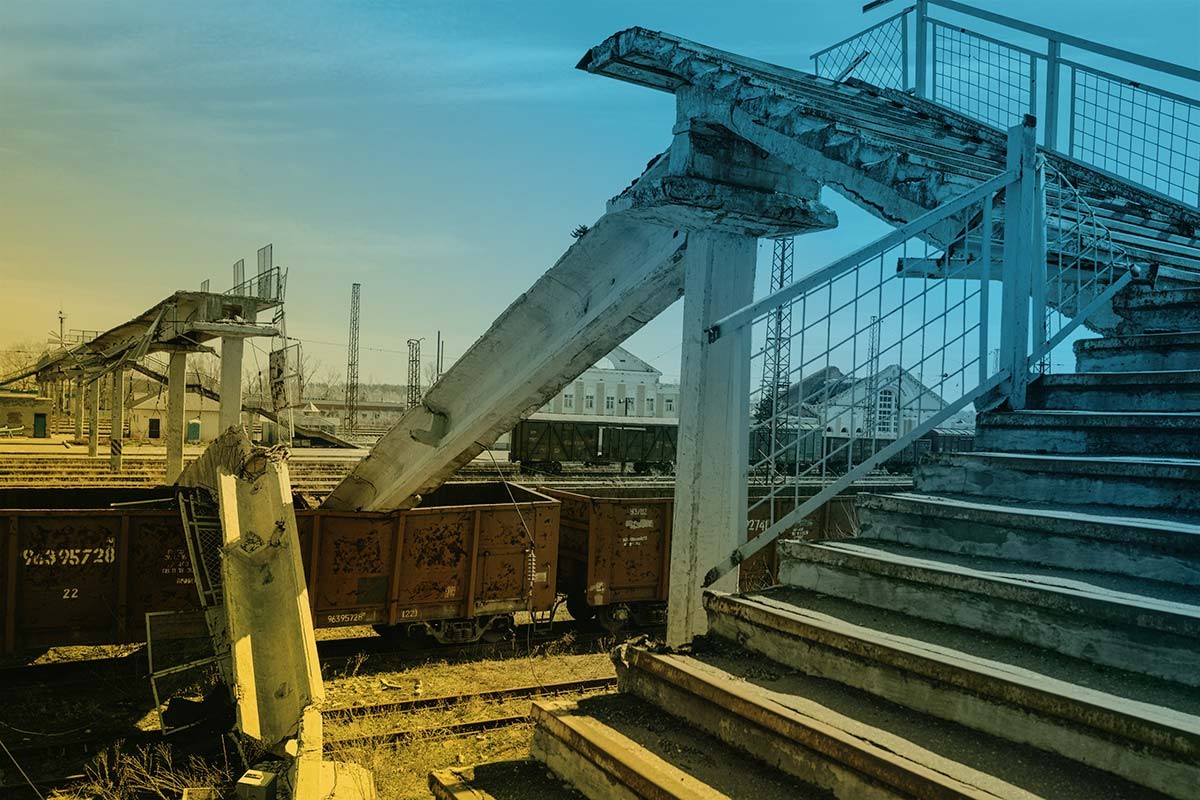Slovakia: “The government failed.”
Slovakia is one of the countries hardest hit by the pandemic in Europe. After MP Matovic and several ministers resigned, liberal opposition politician Michal Simecka demands a fast solution to the government crises.
Slovakia has the highest infection levels in all of Europe, although the government had the entire population tested as early as November. What is the reason for this?
Michal Simecka: Unfortunately, we have been the hardest hit country in Europe since the winter, both in terms of infection and death rates. In the first wave last year, the government responded well. There are several reasons why the situation has deteriorated so drastically. Our health system is nowhere near as good as in other EU countries after the previous government let it deteriorate for years. Many doctors and nurses have left the country. In addition, the highly contagious dangerous mutation from Great Britain is very widespread in our country. But a very important reason is the government’s inability to manage the pandemic. I say this not only as an opposition politician. Since the summer, it has made a series of wrong decisions instead of preparing the clinics and the whole country for the second wave. Prime Minister Matovic has put all his hopes in the mass tests. To date, there is no clear data on what effect they had on the spread of the virus. But one effect was that people felt too safe. When the numbers went up, the government imposed a lockdown too late, not until the beginning of the year. That was the crucial mistake.
The government itself is deeply divided over how to deal with the pandemic.
Simecka: That is the reason why it is not able to present a common plan, agree on measures and implement them. Because of this chaos, the citizens no longer trust her or the measures. And no longer follow them. The government and parliament are paralysed after a number of ministers resigned, including the Minister of Health and now also the Minister of Economy and Deputy Prime Minister Richard Sulik. The situation is very critical. We have a double crisis — Corona and a government crisis.
Is the four-party coalition, led by the conservative-populist prime minister, at an end?
Simecka: It’s hard to say. There is strong pressure on Matovic to resign. He says he is ready to do so, but he makes this conditional on the other coalition partners and Sulik. At the moment, the government is unable to act.
Should the whole government resign?
Simecka: In the current tense situation, where the hospitals are full, the economy needs more aid and the vaccination campaign still has to be implemented, it would be better if the government crisis were resolved quickly so that the situation is somehow managed. The President has therefore also called on the government to end its squabbling. Everyone wants a stable government that acts. That is also the priority for us as opposition at the moment.
What is the mood in the country like?
Simecka: According to polls, 80 percent of the citizens want the prime minister to resign. He has put himself in a position where people distrust him completely.
Could the coalition agree on a new head of government?
Simecka: That would be necessary. But the timing is most unfortunate, in the middle of the second wave. The coalition still has a broad majority in parliament, it could agree on a government reshuffle. However, leading coalition politicians do not rule out a new election.
Why has Sulik resigned now?
Simecka: It is mainly due to personal animosities. Matovic has treated him brutally and insulted him, he behaves in a hostile way towards the coalition partners. He has shown even before the Corona crisis that he is not willing to compromise and listen to others. However, there is also evidence that Sulik has tried to torpedo some of the Corona measures, including Matovic’s high-handed procurement of the Sputnik vaccine from Russia. Sulik’s party has now decided to no longer participate in a government under his leadership. In principle, however, it is sticking to the coalition.
Her predecessor as vice-chair of Progressive Slovakia, Zuzana Caputova, won the presidential election in 2019. That, too, was already an expression of protest against Matovic. Why did your party nevertheless not win a single mandate in the 2020 parliamentary election?
Simecka: Unfortunately, we missed entering parliament by 900 votes. In polls we are at eight percent, which is quite good for an extra-parliamentary party. The situation for the opposition is very difficult. On the one hand, there is Smer, the party of former Prime Minister Robert Fico, which is completely discredited because so much has been revealed about its corruption and links to the mafia. It has to be acknowledged that Matovic did a lot to make sure that this was cleared up and judges and prosecutors were able to look into it without political interference. Politicians, judges, police officers and leading businessmen were brought to justice. They had hijacked the state and they were all connected to Smer and Fico. In opposition, he is becoming more and more radical. His party is also at eight percent, but no one wants to form a coalition with him. Renegade former Smer members have gone to another party under the leadership of the last prime minister, Pellegrini. They call themselves Social Democrats or “Smer light” and are at 20 per cent. There are also fascists. The government therefore has it easy because there is no common opposition to it.
The chances for liberal forces do not seem to be very good.
Simecka: The mood changes very quickly. A few weeks before the 2020 parliamentary election, Matuvic’s party was only at six percent. Then in the election it got 25 per cent. Predictions are therefore difficult. There is a need for a social, liberal, ecological alternative and I think that we as Progressive Slovakia fill this gap well. In an early election we should have good chances, because there is a lot of discontent not only about the Corona policy, but also about the fact that the current government did not seize the opportunity for a political change after the Smer government was voted out, even though it has a two-thirds majority in parliament.
Do you cooperate with liberals in other EU countries?
Simecka: We cooperate with Momentum in Hungary and have good contacts with the Neos in Austria. In the European Parliament we are part of the Group of Liberals and Democrats.
As liberals, do you feel sufficiently supported by forces in Western Europe?
Simecka: The situation in Slovakia is different from that in Poland and Hungary. Despite all the government’s mistakes, especially in the Corona policy, democracy is not in danger here. There are no attacks on the judiciary, freedom of the press or democratic institutions. On the contrary, in the fight against corruption and oligarchs, the government is acting well. But now it is failing.
Michal Simecka is the Vice President of the opposition party Progressive Slovakia which is also the party of President Zuzana Caputova. He is one of two MEPs of the social liberal party and studied politics in Oxfrod and Prague, was a fellow and journalist with the Financial Times.
![]()
Hat Ihnen unser Beitrag gefallen? Dann spenden Sie doch einfach und bequem über unser Spendentool. Sie unterstützen damit die publizistische Arbeit von LibMod.
Spenden mit Bankeinzug
Spenden mit PayPal
Wir sind als gemeinnützig anerkannt, entsprechend sind Spenden steuerlich absetzbar. Für eine Spendenbescheinigung (nötig bei einem Betrag über 200 EUR), senden Sie Ihre Adressdaten bitte an finanzen@libmod.de
Verwandte Themen
Newsletter bestellen
Mit dem LibMod-Newsletter erhalten Sie regelmäßig Neuigkeiten zu unseren Themen in Ihr Postfach.





